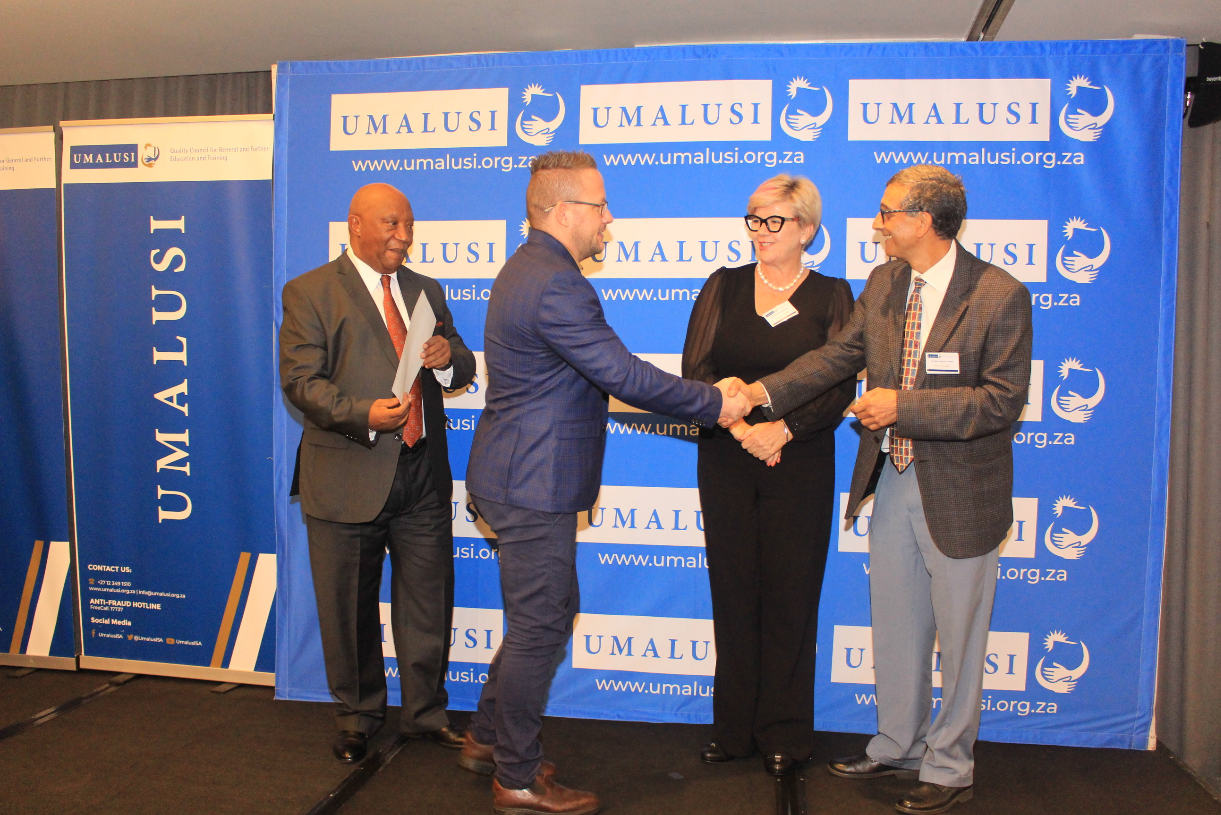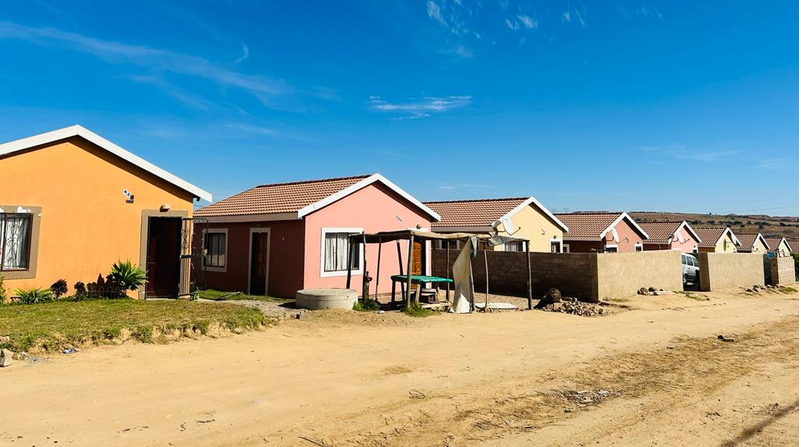Full Umalasi Council accreditation reaffirms Triple E Training’s commitment to quality AET provision

18-04-2024
Read : 68 times
The Content Engine
Source
Triple E Training, a leading private provider of top-notch workplace and community adult education and training (AET) to industry, was recently again fully accredited by the Quality Council for General & Further Education. Considering the important role that the council plays in protecting standards in general and further education, it is also simply referred to as Umalusi, Nguni for “shepherd”. Council accreditation is mandatory to provide AET services in the country and Umalusi plays an important role in guiding private training providers in achieving excellence.
By attaining full accreditation, Triple E Training has met all of Umalusi’s strict criteria to supply AET. Its performance in this regard will be monitored regularly by Umalusi to ensure that these onerous quality standards are maintained throughout the seven-year accreditation period. Thereafter, the company will have to apply to renew its accreditation by undergoing the same extensive process again as is the case with all other private other AET providers. In this way, Umalusi safeguards learners and companies that outsource their essential AET requirements to professional service providers. AET must be undertaken correctly as a critical component of the skills development aspect of broad-based black economic empowerment.
Notably, Triple E Training was one of a few companies that were selected to participate in the piloting of an accreditation process for private sector providers of AET in 2013. Considering the importance of education in achieving redress and transformation, government realised a need for such a system. This was against a backdrop of an influx of unscrupulous companies in the AET market that threatened to bring the entire industry into disrepute and undermine real transformation via skills development and training.
Triple E Training was, therefore, one of the first private AET providers to be fully accredited by Umalusi, attesting to the high quality of AET on offer. Remarkably, it was the only company that participated in the pilot programme to receive full accreditation by the council again.
It took the company about three years to prepare the extensive portfolio of evidence required by Umalasi to renew its accreditation. This is indicative of the weight Umalusi recognition carries. It is the first factor responsible companies consider before appointing an AET service provider.
Mario Maree, Finance Manager of Triple E Training, led the team involved in renewing its accreditation.
“The industry needs a gatekeeper to raise barriers to entry and hold those companies that are already providing accredited AET to the highest possible standards. Bear in mind that there are currently about 4-million South African adults who are functionally illiterate, according to the Department of Higher Education & Training (DHET). This is a responsibility that both the public and private sectors need to shoulder through the provision of quality workplace- and community-based AET,” Maree says.
As a prerequisite for accreditation, an AET provider must be registered with the DHET. Achieving this on its own is also an onerous requirement.
One of the important factors that Umalusi considers for accreditation is the quality of a private AET provider’s learner management systems. Triple E Training has been refining and perfecting its processes over many years. The company’s system efficiently administers learners’ portfolio of evidence (POE) and Site Based Assessment (SBA). This is in addition to tracking learners’ performance on a monthly basis. It monitors learners’ attendance of adult literacy and numeracy training classes and the level of competency that they have already gained. Notably, learners who are struggling with the course content are also red flagged so that suitable intervention can be taken timeously. This is one of the ways that this leading training provider has ensured such a high learner progression rate over the years.
Furthermore, the company’s team of qualified quality assurers visit AET classes, paying particular attention to the way in which adult literacy and numeracy training are being facilitated. Importantly, Umalusi also wants to know how problems that are identified are corrected in a proactive manner and without interrupting the learning experience.
The council also scrutinises the stringent steps taken by AET providers in ensuring that learners are competent in the fundamental, elective and core components. This includes the way in which learners’ POEs and SBAs are evaluated. A POE/SBA provides an indication of competence over the entire duration of an AET programme. At the end of the AET programme, learners are also expected to write an exam which is evaluated, assessed and moderated by South African Comprehensive Assessment Institute/Independent Examinations Board and Umalusi. This three-step process is a robust way of certifying the competence of learners, which is denoted by a General Education and Training-AET Certificate. Individuals who hold this qualification have literacy and numeracy skills at a National Qualifications Framework Level 1. These are the absolute basic skills to be considered functionally literate.
Umalusi also inspects AET training providers’ training materials as part of the accreditation process.
“We prefer to develop our own training materials considering the complexity involved in teaching adults basic education skills. Adults learn differently to children in that they do not just receive outside knowledge. Rather, adults examine their own reality themselves and make assertions about it. Therefore, our materials include many real-life examples and problems that need to be solved with the literacy and numeracy skills that are being taught. This develops and further hones critical, logical and creative thinking skills, fundamental for the effective functioning in modern workplaces, as well as communities and South African society at large,” Maree says.
Furthermore, Umalausi evaluates the quality of private AET providers’ training facilitators. Importantly, they must be qualified educators who are registered with the South African Council of Educators and experienced in teaching adults literacy and numeracy skills. Triple E Training’s facilitators respect that their learners may have had poor past experiences with education. Meanwhile, others may not have been able to complete their basic education due to an array of unforeseen circumstances. Therefore, AET needs to be an all-round positive experience for employees or community members, developing their confidence, self-esteem and keeping them motivated to want to succeed through hands-on support.
Triple E Training has a national network of training facilitators who meet these requirements. They have all also undergone a week-long induction process to familiarise themselves with the company’s unique processes and training materials. They also receive ongoing support from head-office in Krugersdorp, Gauteng, to ensure that they are at the cutting-edge of adult education.
Umalusi Council also wants to ensure that the companies it accredits are viable and sustainable. This is so that they can provide an uninterrupted learning experience. Furthermore, an accredited AET provider must have a robust plan in place to ensure continuity of instruction for learners in the event that it is unable to continue operating.
Importantly, AET providers need to demonstrate that training is being facilitated in a healthy and safe environment. As a work-based training provider, Triple E Training always complies with clients’ own health and safety protocol.
“We brandish our Umalusi accreditation with pride, considering our commitment to delivering only the best possible adult literacy and numeracy training that benefit both our clients and learners. This while driving up standards in adult education in the country,” Maree concludes.
For more information please contact:
David Poggiolini
Debbie Poggiolini
Recent News
Here are recent news articles from the Building and Construction Industry.
Have you signed up for your free copy yet?









